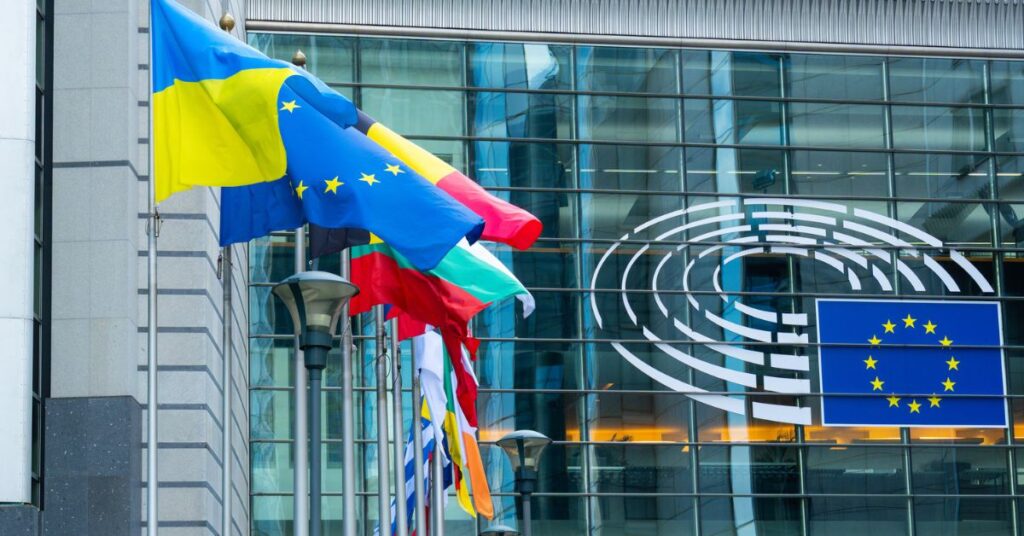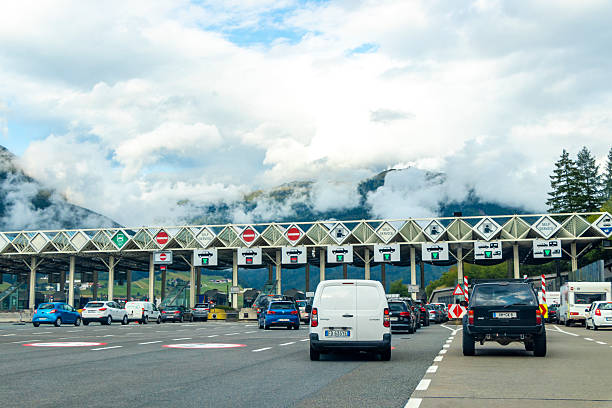
Irregular entries into the European Union (EU) dropped by more than one-fifth in the first eight months of 2025, according to preliminary figures from Frontex, the European Border and Coast Guard Agency.
At the same time, European Commission President Ursula von der Leyen pledged in her State of the Union address to triple EU funding for migration and border management in the next budget, warning that smuggling networks continue to put lives at risk.
Frontex reported 112,375 irregular crossings between January and August, down 21 percent compared to the same period in 2024. The agency said more than 3,700 of its officers are currently deployed to support national border authorities.
Decline in most routes, but pressure remains
The data showed sharp reductions on several main routes. Crossings on the Western Balkan route fell 47%, the Eastern Land Border dropped 44%, and the Western African route decreased by 52%.
The Central Mediterranean route, however, remained the busiest corridor, accounting for 37% of all irregular entries. Nearly 41,900 people arrived in the region, broadly in line with last year’s numbers.
The Eastern Mediterranean route saw an 18% fall overall, but Crete experienced a 310% surge in detections compared to 2024. On the Western Mediterranean route, irregular crossings rose 22%, with nearly 60% more arrivals in August alone.
Frontex attributed this to departures from Algeria, which accounted for more than 90% of detections this year, facilitated by Algerian-Moroccan criminal networks offering low-cost passage to Spain.
The sharpest decrease occurred on the Western African route, where almost 12,150 detections were registered, down by more than half from the previous year. Frontex credited reinforced border cooperation with Mauritania as a key factor behind the decline.
Human toll of crossings
Despite the overall decrease, the International Organization for Migration estimated that 1,131 people had died attempting to cross the Mediterranean in 2025.
Frontex noted that smugglers departing from Libya are increasingly using speedboats to maximize profits and evade detection.
Crossings through the English Channel rose 13%, reaching more than 46,000 attempts. August alone saw 4,734 attempts, a figure reduced by persistent bad weather and rough seas.

A call for stronger EU action
Addressing the European Parliament on September 11, von der Leyen said that Europe must respond with a more effective and humane migration management system.
She announced plans to triple EU spending on migration and border management and called for new sanctions specifically targeting people smugglers and traffickers.
“We need a new system of sanctions specifically targeted at people smugglers and traffickers. To freeze their assets. To restrict their ability to move around. To cut off their profits. People smuggling is a horrible, criminal business, and no smuggler should be allowed to get away with it in Europe,” she told lawmakers.
Von der Leyen also stressed the need for a Common European Return System to ensure rejected asylum seekers leave the EU. She cited figures showing that only about 20% of those denied protection currently depart.
She urged governments to move quickly to implement the Migration and Asylum Pact, due to take effect in June 2026.
Broader security, foreign policy
In her address, von der Leyen also linked migration and security policy to Europe’s broader geopolitical stance. She reaffirmed the EU’s commitment to Ukraine, condemned Russia’s aggression, and announced work on a new sanctions package.
She proposed using immobilized Russian assets to provide Ukraine with a reparations loan that would only be repaid once Russia covers the cost of damages.

Changing conditions for travelers, residents
The drop in irregular border crossings comes as Europe prepares to launch new digital border control systems.
The Entry/Exit System (EES), set to begin on October 12, 2025, will replace passport stamps with electronic records of when non-EU nationals enter and leave participating countries. The system will be fully in place by April 2026.
For travelers, this will mean faster checks and less paperwork, but it will also allow authorities to track overstays and detect repeated attempts at irregular entry more effectively.
By the end of 2026, the European Travel Information and Authorization System (ETIAS) will also take effect. Nationals of 59 visa-exempt countries will need to apply online for authorization before traveling to Europe.
ETIAS will be valid for three years, or until a passport expires, and will apply to short stays of up to 90 days within a 180-day period.
For short-term visitors, these measures will introduce an extra step before boarding a flight or crossing a border, but they are designed to make entry more predictable once authorization is secured.
Long-term visitors and residents will feel the changes through tighter monitoring of their legal status, since the new systems automatically record entries, exits, and refusals of entry.
Migrants, particularly those without authorization, will face stronger enforcement of return policies, as data collected by EES and ETIAS will make it harder to remain in the EU undetected.
Building a safer future together
The EU is focusing on two goals: protecting people and keeping borders secure. Von der Leyen has pushed for stronger action against smugglers and faster returns for those not allowed to stay.
At the same time, Frontex reports a drop in irregular border crossings this year, showing that joint efforts are having an impact.
These changes matter for anyone coming to Europe, whether for a short trip, a longer stay, or a new life. With systems like the EES, the ETIAS, and the Migration and Asylum Pact on the way, today’s decisions will shape how people travel and settle in the EU.
